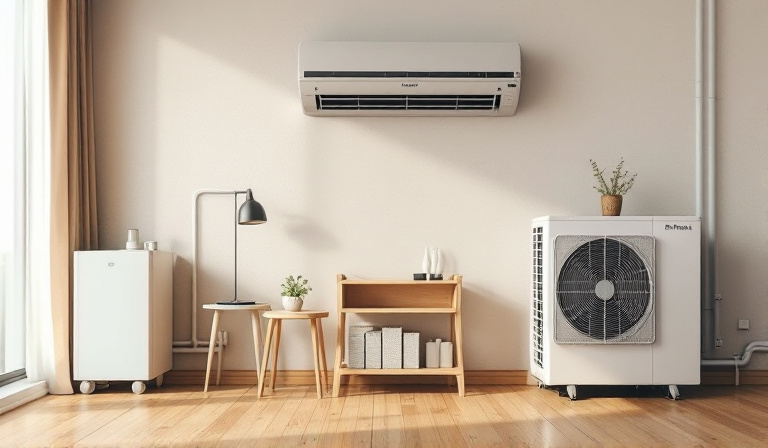When it comes to home comfort, selecting the right HVAC system is crucial. With advancements in technology and a growing emphasis on energy efficiency, choosing the best system for your home in 2025 can be a daunting task. This guide will help you navigate the options available, focusing on the most popular HVAC systems, their benefits, and which might be the ideal fit for your home.
Understanding HVAC Systems
HVAC stands for Heating, Ventilation, and Air Conditioning. It is a comprehensive system designed to provide indoor comfort by regulating temperature, humidity, and air quality. The main types of HVAC systems include:
- Central Air Conditioning: Common in larger homes, these systems use ducts to distribute cooled air throughout the house.
- Ductless Mini-Split: Offers targeted cooling and heating without the need for ductwork, ideal for older homes or additions.
- Heat Pumps: These systems transfer heat from one place to another, offering both heating and cooling capabilities.
- Geothermal Systems: Utilize the earth's natural heat, known for their efficiency and sustainability.
- Smart HVAC Systems: Integrate with smart home technology for enhanced control and energy savings.
Factors to Consider When Choosing an HVAC System
Your choice of HVAC system should be influenced by several key factors:
- Climate: Consider your local climate. Heat pumps might be perfect for mild climates, while central air systems are better suited for hotter regions.
- Home Size and Layout: Larger homes may benefit from central air systems, while smaller or segmented homes might do well with ductless options.
- Energy Efficiency: Look for systems with high SEER ratings or Energy Star certifications to reduce long-term costs and environmental impact.
- Budget: Consider both the initial installation cost and potential energy savings over time.
- Environmental Impact: Geothermal and heat pump systems generally have a lower carbon footprint.
Pros and Cons of Popular HVAC Systems
Let’s dive deeper into the pros and cons of these systems to help you make an informed decision.
Central Air Conditioning
- Pros:
- Effective cooling for entire homes.
- Improved air quality with proper filtration.
- Cons:
- Requires ductwork, which can be costly to install or repair.
- Less energy-efficient compared to other systems.
Ductless Mini-Split
- Pros:
- Easy installation with no ductwork required.
- Energy-efficient and ideal for zoning.
- Cons:
- Higher upfront cost per unit.
- May not be aesthetically pleasing due to indoor units.
Heat Pumps
- Pros:
- Provides both heating and cooling.
- Highly efficient in moderate climates.
- Cons:
- Less efficient in extreme cold conditions.
- Higher initial cost compared to traditional systems.
Geothermal Systems
- Pros:
- Extremely energy-efficient and environmentally friendly.
- Long lifespan with minimal maintenance.
- Cons:
- High installation cost.
- Requires sufficient land for installation.
Smart HVAC Systems
- Pros:
- Remote control and automation capabilities.
- Potential for significant energy savings.
- Cons:
- Initial setup can be complex and costly.
- Reliance on internet connectivity.
Making the Right Choice for Your Home
Ultimately, the best HVAC system for your home in 2025 depends on your specific needs, budget, and environmental considerations. For those prioritizing energy efficiency and sustainability, geothermal or heat pump systems are excellent choices. If ease of installation and flexibility are your main concerns, consider a ductless mini-split system. Smart HVAC systems are ideal for tech-savvy homeowners looking for convenience and control.
Consult with a professional HVAC technician to assess your home and provide personalized recommendations. By understanding the options and carefully considering your needs, you can ensure that your chosen HVAC system will provide comfort and efficiency for years to come.
